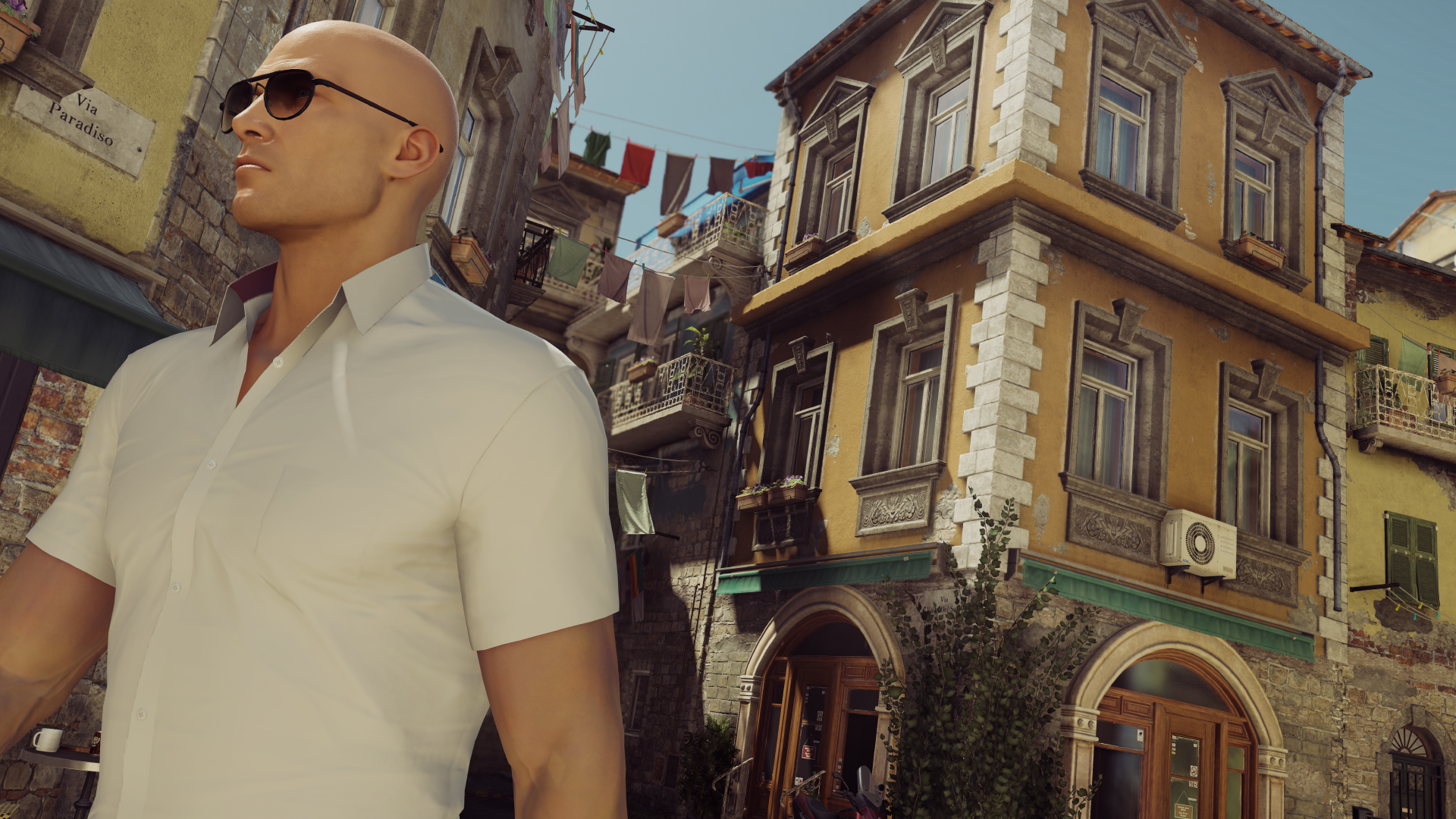GamesRadar+ Verdict
A successful resurrection of Hitman. Deft systems design and great levels, slightly let down by production issues and online restrictions.
Pros
- +
It's like Blood Money, but bigger
- +
New disguise system works brilliantly
- +
Designed for replays, so there's always something new to try
Cons
- -
This global adventure reuses the same few voice actors
- -
You miss out on a lot if you have to play offline
Why you can trust GamesRadar+
Viktor Novikov has been poisoned, electrocuted, strangled, shot, crushed under the weight of an avant garde lighting rig, pushed in a river and drowned in toilet. He hasn't, yet, been killed by a remotely detonated bomb hidden in a camera. I think I'll try that next. Novikov is a Russian oligarch, fashion mogul, and the financier of an international spy ring. More importantly, he's a target – one of many marked figures spread across Hitman's six main missions. Your job, as legendary assassin Agent 47, is to kill every one of these targets. You'll not be left wanting for new, interesting ways to do so.
Six levels might seem lean, but each of Hitman's missions are large and broad. Choice and variety is integral to the design – a necessary part of the original episodic release, where each episode had to sustain players for months. Every episode has now been bundled into a single package – the entire main campaign, three bonus missions and a new, more challenging difficulty – and it feels enormous. For those looking to achieve a perfect Silent Assassin rank, the first attempt at a mission can take upwards of an hour. Killing a target without being detected requires you to find weak points in the intricate clockwork of security systems and NPC patrol loops.
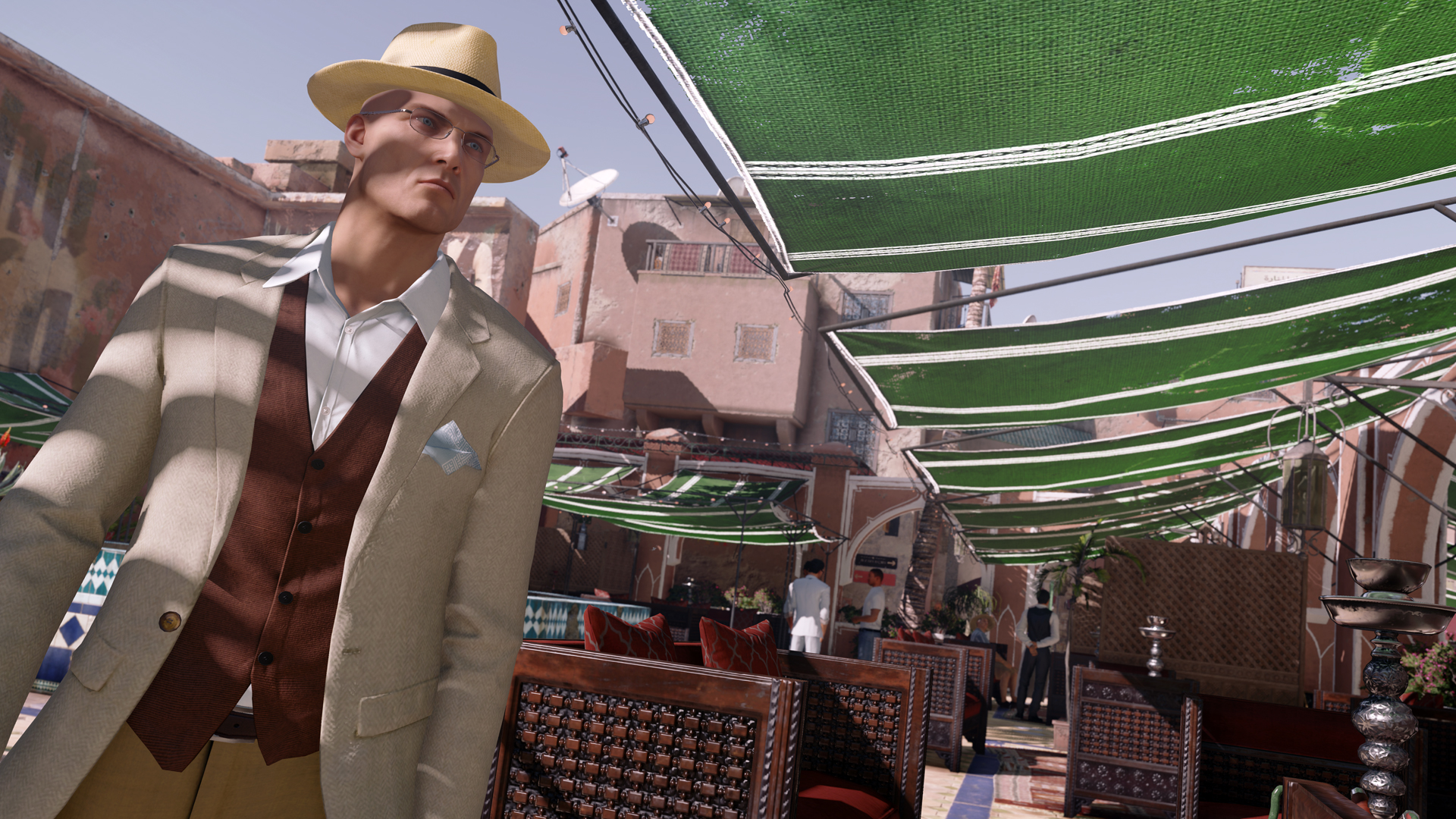
As a series, Hitman has always felt unique among stealth games. You're rarely required to sneak, and instead must hide in plain sight. Disguises taken from unconscious or dead NPCs let you blend in, bypassing security checkpoints not by finding routes around, but by pretending to be someone else. Here, the disguise system has been refined to remove any uncertainty. If you're dressed as a waiter, you can freely go wherever a waiter would be allowed and, unless you're doing something suspicious, such as carrying a gun or drowning someone in a toilet, no one will bother you.
The exception is certain other members of the profession you're pretending to be, marked by a UI prompt, who recognise that you aren't one of their own. It's an elegant system. In previous Hitman games – even the lauded Blood Money – suspicion could be a sledgehammer to your plan. In Hitman, you're given room to plot and reassess. The moment-to-moment action isn't about infiltration, but manipulation. As such, Hitman satisfies a core fantasy that feels distinct from other games.
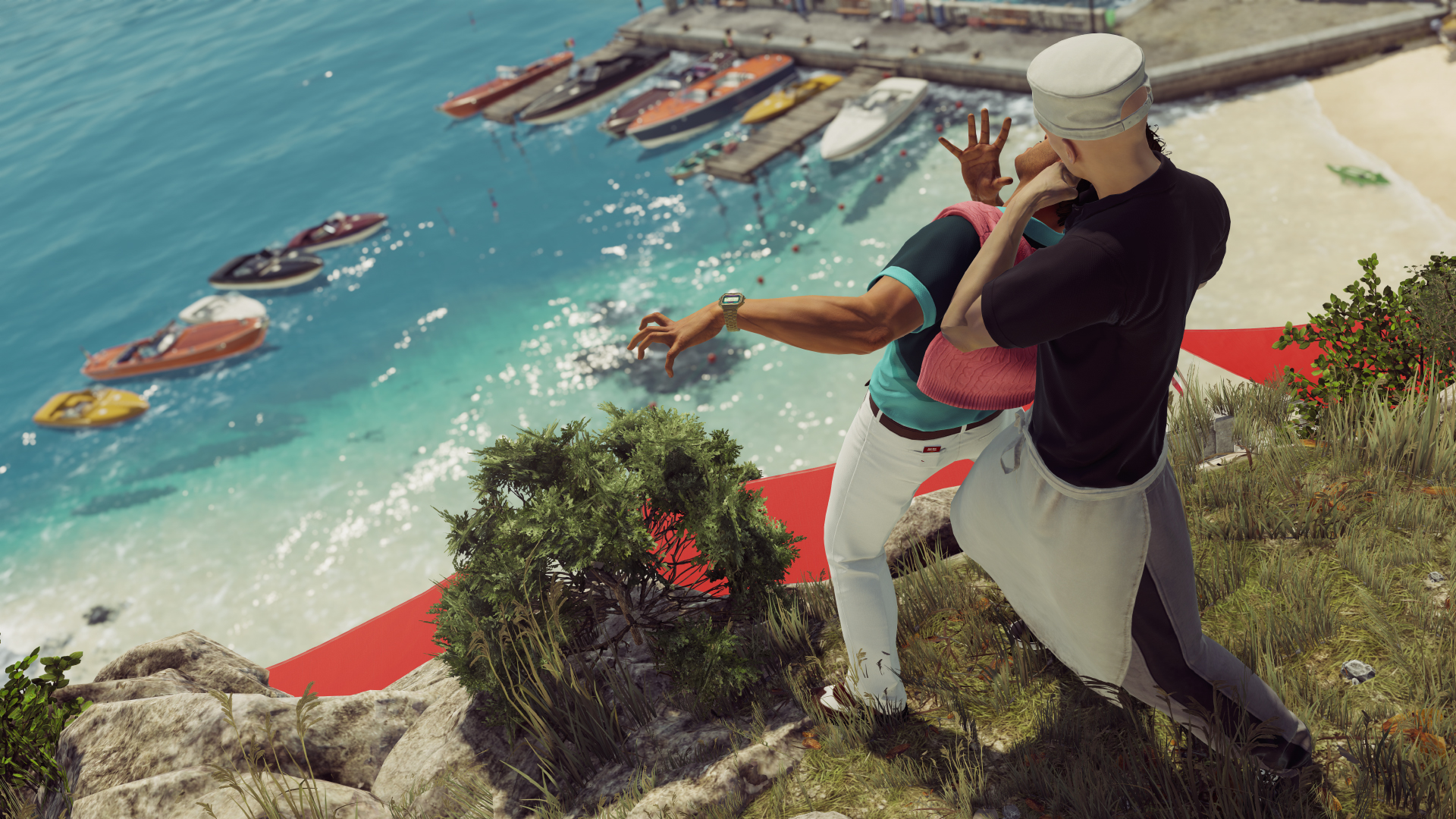
Reaching your target can be painstaking work but satisfying, and mitigated by the fact that Hitman rarely punishes for small mistakes. Even if the best rating slips away, a messy completion still lets you earn challenge points that unlock new equipment and alternative starting locations. It's often possible to recover from anything short of a full scale firefight against multiple security guards. And even a failure is an opportunity to learn, because Hitman is designed to be replayed.
There is a campaign, and a pretty lacklustre story told in post-mission cutscenes and via NPC dialogue, but Hitman's structure doesn't require you to play each level in sequence. It's worth doing, mostly to experience how developer IO Interactive experiments with the basic Hitman template in later levels. You are, however, free to bounce between locations, sampling the many activities – from main missions, to Escalations, which test your ability to adapt and refine by adding new complications each time you replay.
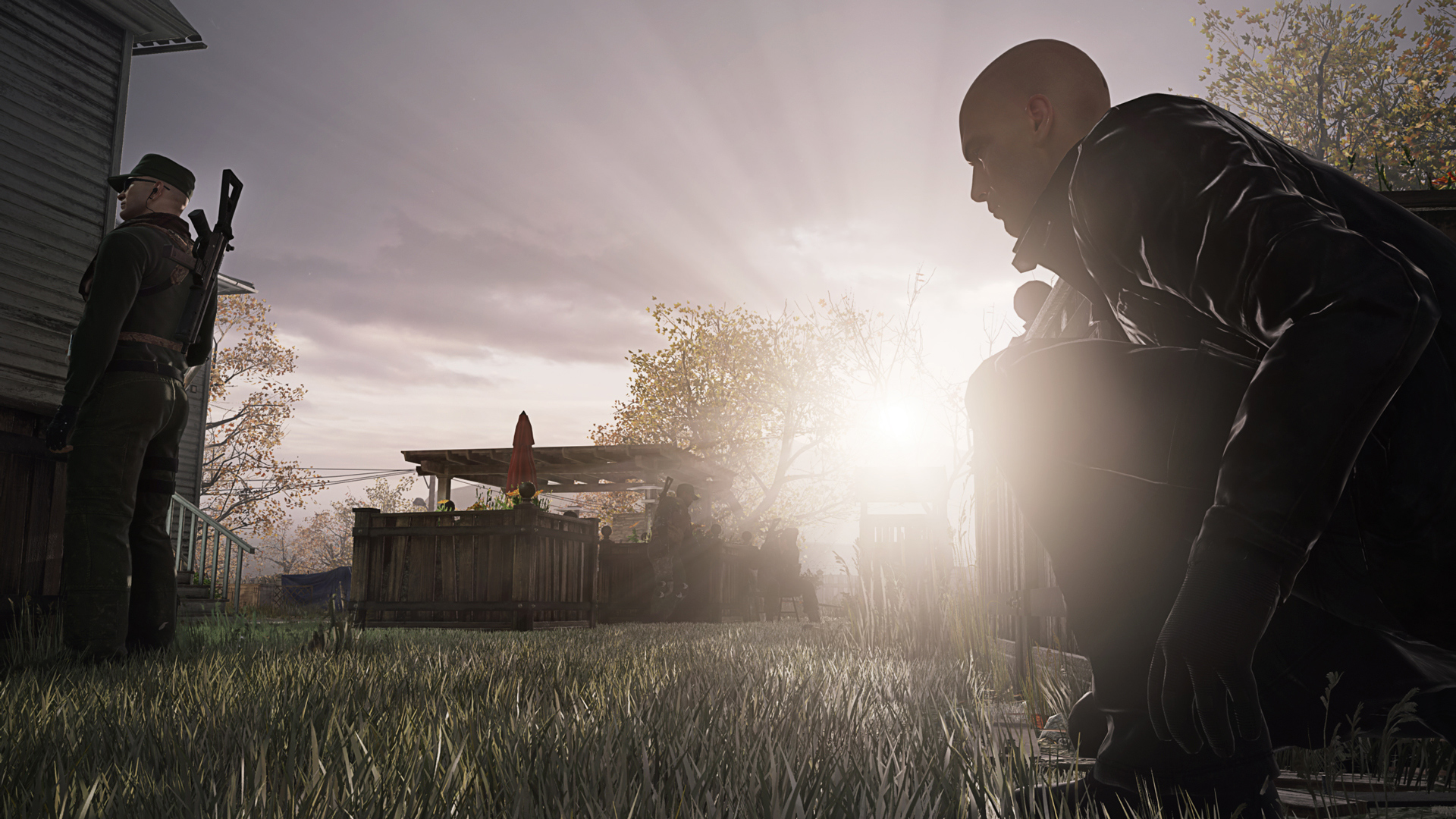
This dedication to variety and replayability is why I've taken Novikov down in so many interesting ways. It's possible to kill your target with a bullet or fiber wire, but each also has a selection of bespoke accidents waiting to happen. I've planted an explosive golf ball on a scientist's green, and dropped a stuffed moose on the head of an investment banker. Blood Money also features accidents, but Hitman takes things further, tying them into a system, called ‘Opportunities’, that lets you manipulate your target in specific ways.
By default, opportunities place objective markers at each of the steps needed for completion. It's a level of handholding that feels too overbearing for Hitman's specific challenge. They can be toned down, or turned off altogether, and it's worth doing so in favour of figuring things out as you go. Reduced to a step-by-step guide, Hitman is both too short and easy to feel rewarding.
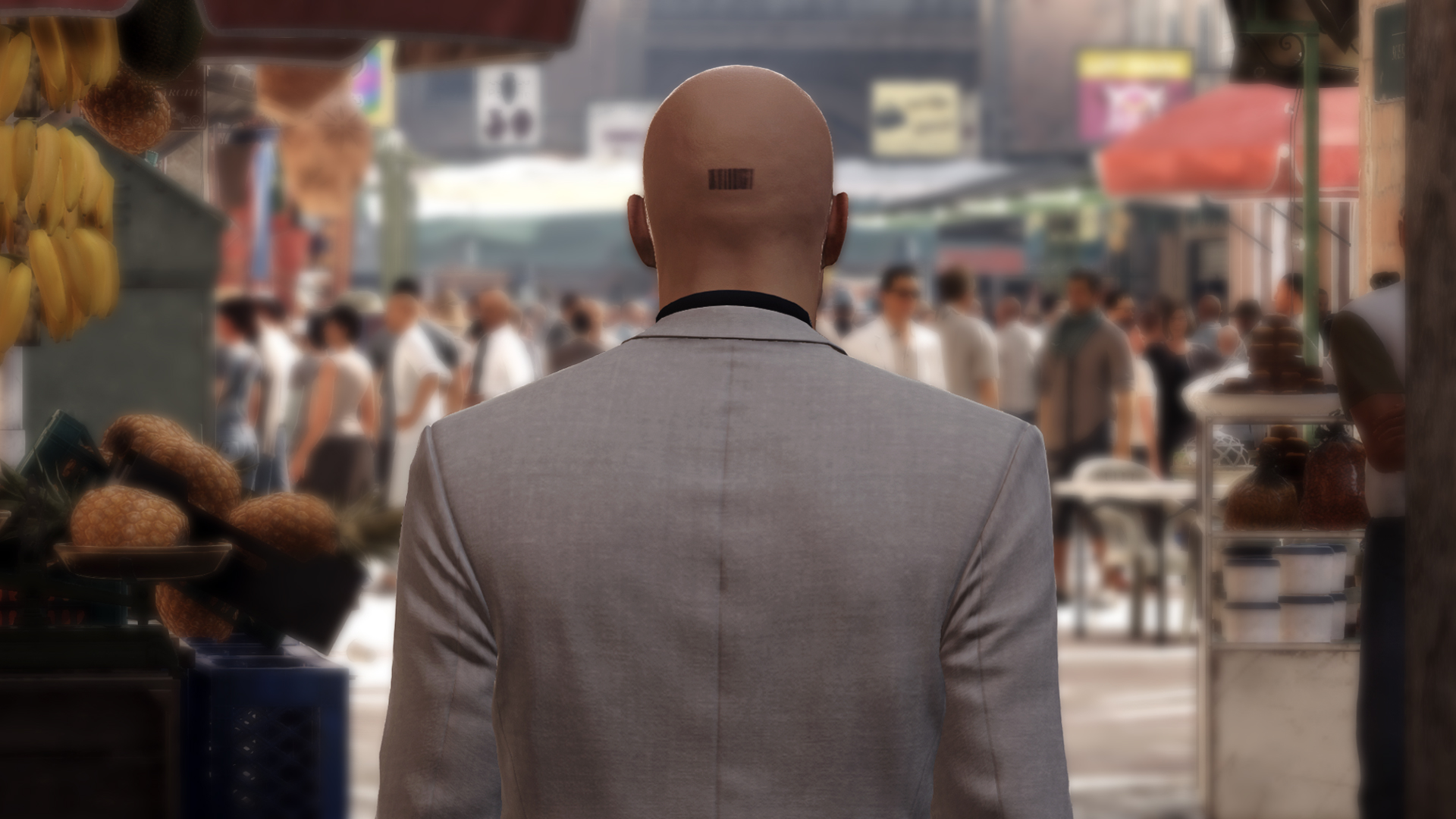
The six levels span the breadth of the globe, and are all at least good. Two, however, are great. Sapienza and Hokkaido stand out, the former by being the best example of a Blood Money style sandbox with a much greater size and scope, and the latter through an experimental tweak to disguises that defines how you move through the level. Often, though, Hitman's locations don't quite have the strength of theme of Blood Money. That game's Mardi Gras level felt specific to New Orleans. The same can't be said of, for instance, Hitman's Bangkok Hotel, which only represents its location superficially.
You'll also notice a lot of audio repetition, both of music and voice actors. Ironically, these flaws chip away at immersion in a way that works in Hitman's favour. In Blood Money, NPCs were sexualised caricatures – inhumanly proportioned grotesqueries that othered the player from the action in a way that mirrored 47's separation from the world at large. Hearing the same few voice actors feels less like a deliberate technique, but it achieves a similar effect – lessening the sense of a reality, and allowing the systems design to shine as an intellectual puzzle in a way that puts you in a similar mindset as the precise, professional killer you're inhabiting. I try not to think about it too much.
By far the biggest problem is Hitman's online requirements. This is not a multiplayer game, but progress, rankings and challenge completion all require you to be online. If you drop connection mid-level, it pauses until you can restore. There are elements that obviously require a connection – both the player-made Contracts and the time sensitive Elusive targets, which can only be attempted once. But, outside of these specific mission types, there's nothing that justifies such restrictions.
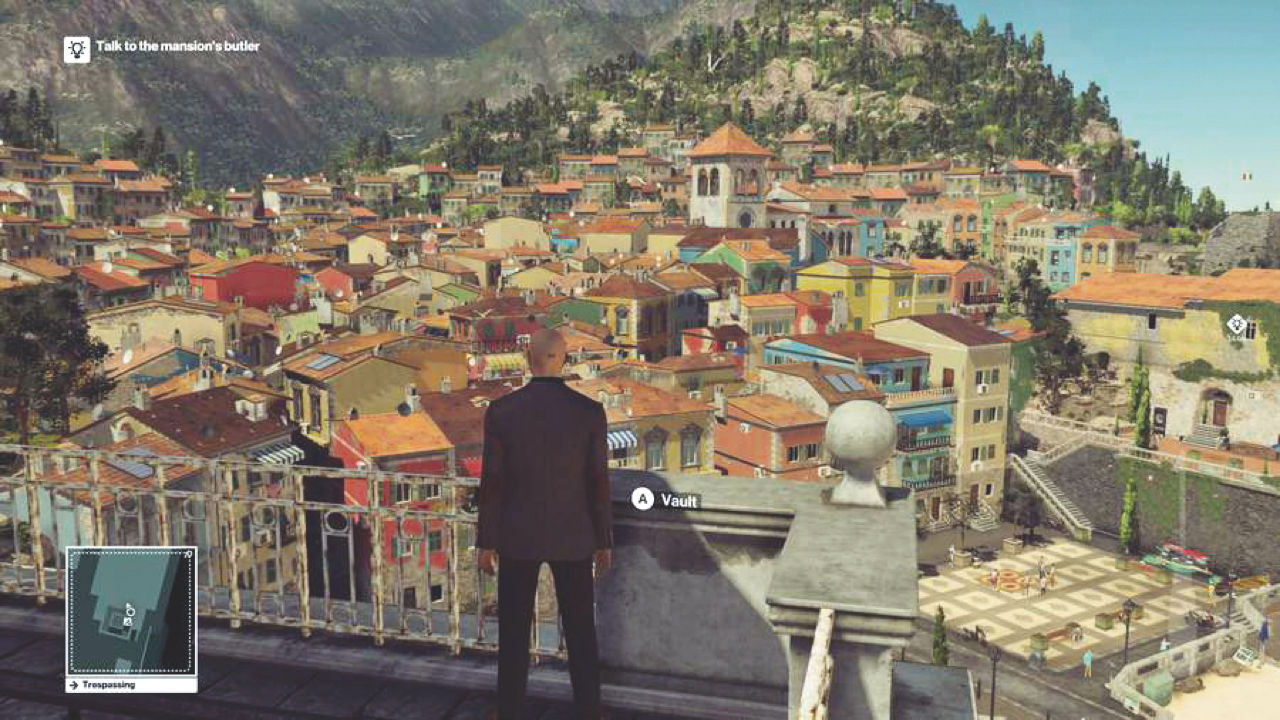
Assuming you can sustain a consistent connection, though, Hitman is a joy. And it's made better by the new Professional difficulty mode. It tweaks each level to remove certain surefire tactics, and restricts you to a single mid-mission save. The changes are enough that familiar scenarios felt tense again. I was initially disappointed that it didn't restrict the subdue option, which lets 47 non lethally incapacitate any NPC – a change from Blood Money that, at regular difficulty, often feels a bit too forgiving. After numerous ill-fated professional runs, however, I suspect the increased size and density of these environments wouldn't support such a change.
Hitman is a confident return for IO, after a controversial departure with Hitman: Absolution. This first season starts well, with a series of solid missions that showcase the new scope, and ends with some interesting iterations on that template. A slight mid-season slump, with the competent if unremarkable Marrakesh and Bangkok, don't diminish the achievement. While Blood Money retains the edge thematically, the refined focus of the design and vast environments filled with possibilities and potential all make Hitman a strong successor.
You can read our episodic reviews of Hitman here. This game was reviewed on PS4.
Phil is the UK Editor of our sister site, PC Gamer. He's been writing for them for over a decade, initially starting out as a freelance writer specialising in MMOs. Now he leads PC Gamer's UK team, but still sometimes finds the time to write about his ongoing obsessions with Destiny 2, GTA Online, and Apex Legends. When he's not levelling up battle passes, he's checking out the latest tactics game or dipping back into Guild Wars 2.
